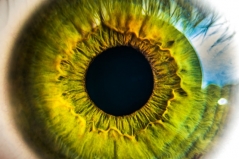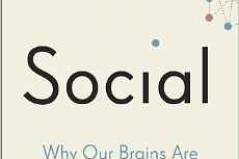More than meets the eye: Physical sensations influence first impressions

keywords:
person perception / social cognition / impression formation / embodied cognition / metaphor
More than meets the eye: Physical sensations influence first impressions
People are special. Person perception is quite different from rock perception, for example. Geologists, those with a rock in their shoe, and pet rock owners aside, the perception of a rock is often merely the perception of a collection of lines and surfaces. Yet people are not simply collections of lines and surfaces. People have inner worlds such as mental states and... / more
What can metaphors tell us about personality?
keywords:
metaphor / personality / individual differences / color / taste / self
What can metaphors tell us about personality?
Our language is filled with metaphors (Gibbs, 1994). We have “bright” ideas, try to stay “balanced”, and feel “close” to others, but sometimes feel “down”, have “dark” thoughts, and “explode” with rage. What is the purpose of such language?
According to Lakoff and Johnson (1980; 1999), metaphors allow us to understand abstract thoughts and feelings that cannot be directly seen, heard, touched, smelled, or tasted. Stated a different way, we may speak metaphorically because...
/ moreSeeing mountains in molehills: Embodied visual perception of the environment

keywords:
visual perception / embodiment / motivation / resources / health and fitness
Seeing mountains in molehills: Embodied visual perception of the environment
You have likely experienced the phenomenon. Perhaps it occurred on the walk from the train after an exhausting day at the office. Or maybe you noticed it on the uphill trek to class while lugging a backpack stuffed with textbooks. That hill looming in front of you—surmountable most days and probably no more than a few degrees incline —right now looks more like Mount Everest. Likewise, the six-block walk from the train appears to stretch for miles. The... / more
Judging a book by its cover: Prior knowledge determines the effect of embodied cues.
keywords:
embodiment / priming / metaphor
Judging a book by its cover: Prior knowledge determines the effect of embodied cues.
Research has shown that physical experiences can influence metaphorically related judgments. For example, the experience of physical weight influences estimates of value and importance. Careful examination of existing evidence suggests that how much knowledge people have about a target of a judgment determines whether the experience of physical weight influences that judgment. Three studies directly test this hypothesis, finding that participants evaluated a book as more important when it was heavy (due to a concealed weight), but only... / more
Social: why our brains are wired to connect.
Social: why our brains are wired to connect.
Humans have large brains. According to the social brain hypothesis, proposed by Robin Dunbar, the social environment played a large role in the evolution of the human brain’s structure and function. Today, typing “the social brain” in google scholar results in more than 10.000 hits. More than half of those hits refer to papers or books published since 2010. Conclusion: the social brain is a “hot” term in psychology. In his book “Social: Why our brains are wired to connect” Matthew Lieberman outlines his view on why we have a social brain, and how our social brain processes the world around us. Applying his view more broadly, he also explains what having a social brain may mean in dealing with social issues such as education, work and building social connections. / more
Why Madonna was right: Music really does make the people come together
keywords:
music / synchrony / social bonding
Why Madonna was right: Music really does make the people come together
In August 2000, global superstar Madonna released the single “Music” from her soon to be hit album. Other than the brilliant lyrics “Do you like to Boogie woogie”, you might remember that one of the lines in the chorus was “Music makes the people come together.” In this post, I will discuss the social psychological research, which suggests that she was more right then even she must have thought. / more
Is banning bossy enough to enact real social change? Celebrity activism and the “Ban Bossy” campaign
keywords:
social influence / celebrity / leadership / activism / media
Is banning bossy enough to enact real social change? Celebrity activism and the “Ban Bossy” campaign
Recently celebrity activists such as Beyoncé, Jenifer Garner, and Sheryl Sandberg have thrown their weight behind a campaign to ban the term “bossy” to describe women (banbossy.com, #banbossy). The goal of the campaign is to encourage young women to step into leadership roles and to assert themselves in the classroom and in life. In this blog I highlight the social value of celebrity activism and I highlight important caveats of celebrity activism based on science. / more
Variety and motivation: The crux to lasting happiness
keywords:
hedonic adaptation / happiness / motivation / variety
Variety and motivation: The crux to lasting happiness
Most people seek lasting happiness but only a few are aware of the fact that false expectations and a tedious lifestyle can speed up the disappearance of happiness. In this blog post, I explain how exciting activities and motivation may curb the dwindling of happiness. / more
Being rational and emotional are not (necessarily) contradictions
keywords:
voting / rationality / emotions / morality / political psychology
Being rational and emotional are not (necessarily) contradictions
In the first part of this three part series, my colleague Ellie Shockley described how rational thinking may drive political attitudes and voting behavior. In the second part of the series, Matt Moytl described how emotion may drive political attitudes and voting behavior. In the final part of this series, I discuss how emotions and reasons are not necessarily in conflict. / more
CEO’s, morality, and minds: How good and bad guide our perceptions of others
CEO’s, morality, and minds: How good and bad guide our perceptions of others
Morality colors the way we view the world, but how it influences our judgments of others is a controversial debate. One popular view is that morality biases people’s perceptions of others—specifically others’ intentions. I suggest that this view is incorrect. Instead, valence, not morality, guides perception, and it does so in a way that may be adaptive. / more

